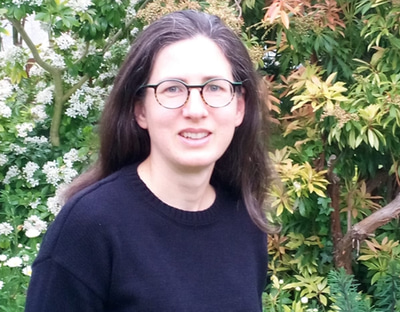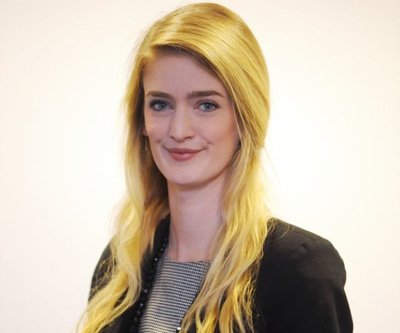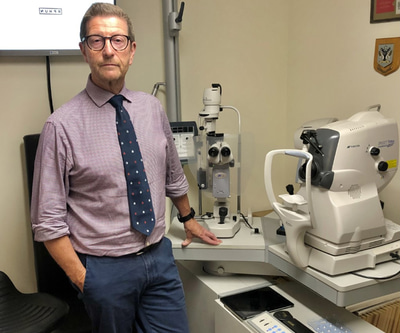- OT
- Life in practice
- Practitioner stories
- Peer learning goes virtual: dinner, a comfy seat and “professional craic”
What I have learned
Peer learning goes virtual: dinner, a comfy seat and “professional craic”
NHS Education for Scotland tells OT how its Peer Assisted Learning network informed the launch of Optometry Practice Assisted Learning

10 December 2021
What is the Peer Assisted Learning (PAL) network?
Rebecca Daly (RD), PAL lead NHS Education for Scotland: The PAL Network was developed by NHS Education for Scotland (NES) in 2015, addressing the need for eye care practitioners to engage in regular peer discussions, reviewing cases and learning from each other’s experiences. NES were already running a similar, successful network for GP and clinical practice staff.
There are currently approximately 30 active PAL groups that meet regularly throughout Scotland and as engagement has increased over the years, we have developed packs for general and independent prescribing optometrists, dispensing and contact lens opticians. We continually evaluate and look for improvements, one example being the recent launch of Journal Club packs to support evidence-based practice.
How has this been adapted to respond to COVID-19?
RD: PAL responded by immediately going virtual. GoTo Meeting and Zoom replaced living rooms, cafés and NES facilities. The facilitators have been great at adapting to online delivery, which can certainly be challenging. That said, some groups are now keen to return to face-to-face sessions, with even the social aspect of the event supporting many practitioners’ wellbeing.From PAL we have learned that sessions with the same groups build relationships, trust, and create a safe, non-judgemental environment that encourages free discussion and learning
What has led to the development of Optometry Practice Assisted Learning? What will this involve and why was this needed?
Madeline Harvey-Brown (MHB), OPAL lead NHS Education for Scotland: We all appreciate that eye care in community practices is delivered by practice teams, not just registered practitioners. When defining clinical risks in our practices, we must address everyone working in the system. OPAL has been designed to support practice teams. It uses the same approach as PAL and provides training materials to be undertaken as a team activity with all members of the practice.
What do you hope OPAL will provide?
MHB: We aim for OPAL to support the delivery of safe and effective patient care and enhance teamwork in community practice. We recently launched our first two OPAL training packs, both of which are COVID-19 themed, and we have already had interest from 40 practices throughout Scotland. OPAL is available to any optometry practice in Scotland and can be applied for via Turas Learn.What learnings from PAL are you applying to OPAL?
MHB: From PAL we have learned that sessions with the same groups build relationships, trust, and create a safe, non-judgemental environment that encourages free discussion and learning. We aim to continue this small group learning approach with OPAL, while recognising the diversity of the practice team.We all get home from work, have our dinner, get a comfy seat, and just enjoy the professional craic that flows
When did you join the PAL Network?
Steven Whittaker (SW), Independent prescriber optometrist and PAL facilitator: I’ve been a PAL facilitator for the past four years, and over that time I’ve found the PAL sessions to be a good way to keep in touch with colleagues, both professionally and socially.

What is it like to be a PAL facilitator? What have you gained from this and what does it mean to you to build on your knowledge in this way?
SW: I facilitate the sessions in Ninewells Hospital, Dundee, and I’ve used those facilities and the opportunity that PAL offers to ensure that all the local optometrists have access to CET. In our group we utilise the PAL packs provided, or the practitioners bring a case that meets the discussion theme for the evening. We discuss the patient presentations, options, and clinical management plan. As the facilitator, I just need to keep one step ahead, and so in advance of each evening I research around the topic using the College of Optometrists’ guidelines, GOC requirements, local protocols etc. I take a lot of pleasure from that process, and I find that I learn and retain a lot by that, and by the range of topics and experiences that my fellow delegates bring with them.I have ceased to be surprised by the general level of intellect, experience, knowledge, and generosity of my professional colleagues in these discussions
How has the PAL scheme been impacted by COVID-19 and how have you had to adapt?
SW: COVID-19 had a big impact on these sessions, so we swapped to virtual meetings. Initially, there was some reticence in speaking to the camera, but that soon eased, and now we all log in, chat away, and it’s very natural. In fact, it has broadened the appeal to practitioners, as there is now no travelling involved, and we all get home from work, have our dinner, get a comfy seat, and just enjoy the professional craic that flows.During the COVID-19 times we also opted to change the format slightly, from patient-based topics, to the new PAL Journal Club packs. I like to keep things fresh and interesting, and having completed my Master’s in primary care ophthalmology at the University of Edinburgh, and being a keen reader anyway, we have started choosing a Journal Club pack as our topic for the evening, and we all read the paper, critically appraising it.
Has anything surprised you, or have you had any memorable moments or take-aways from the experience?
SW: I have ceased to be surprised by the general level of intellect, experience, knowledge, and generosity of my professional colleagues in these discussions, and the past few Journal Club discussions have been around Scottish-based papers on the primary – secondary care interactions regarding glaucoma. As COVID-19 has caused particular problems in keeping up with glaucoma patient follow-ups and reviews, in Tayside community optometry has been asked to step up to help keep this vital service going, alleviating the waiting list pressure on the hospital eye care service, so these papers have provided invaluable local knowledge and networking.


Comments (0)
You must be logged in to join the discussion. Log in